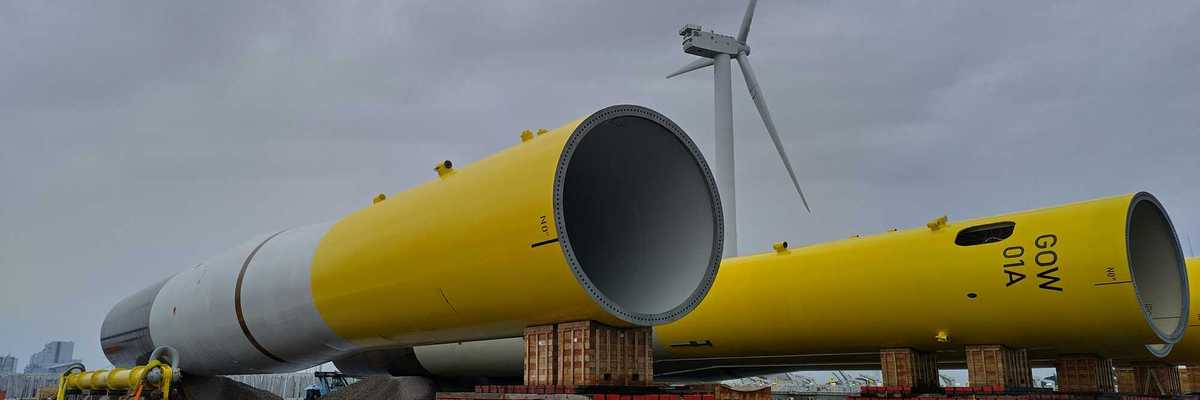trade
US imposes tariffs on Chinese electric vehicles to protect domestic industry
President Joe Biden's administration has increased tariffs on Chinese electric vehicles, a move supported by U.S. automakers to shield local jobs and investments from low-cost imports.
In short:
- The Biden administration raised the tariff on Chinese electric vehicles to 100%, aiming to support U.S. electric vehicle and battery production.
- This tariff strategy reflects concerns about China's potential to flood the U.S. market with economically priced electric vehicles, challenging domestic manufacturers.
- U.S. automakers argue that such protective measures are vital for maintaining competitiveness and safeguarding American jobs.
Key quote:
"Today’s announcement is a necessary response to combat the Chinese government’s unfair trade practices that endanger the future of our auto industry."
— Senator Gary Peters, Michigan Democrat
Why this matters:
The move underscores growing unease over China's rapid advancements in the electric vehicle sector, which pose significant competition to U.S. manufacturers. By imposing these tariffs, the U.S. aims to prevent market saturation with cheaper imports, thereby encouraging local production and technological innovation in the burgeoning electric vehicle industry.
China's green tech surge sparks global trade tensions
China's rapid expansion into renewable technology, including becoming the world's largest producer of solar cells, is raising concerns over potential unfair competition in the U.S. and Europe.
In short:
- China dominates the global market in solar panels, electric vehicles, and lithium-ion batteries, raising alarms in Western countries.
- The U.S. and Europe are investigating China's trade practices, worried about the impact on their own renewable energy industries.
- Chinese companies are looking abroad for profits, potentially pushing American and European competitors out of the global market.
Key quote:
“From a Chinese perspective, their industrial policy really worked. Now they are starting to hit walls.”
— Nis Grünberg, a researcher at the Mercator Institute of China Studies
Why this matters:
As the world grapples with the urgent need to combat climate change, China's leadership in green technology offers a glimpse into a future where renewable energy and sustainability take center stage.
Be sure to listen to Agents of Change senior fellow Azmal Hossan as he talks about an ambitious effort he’s part of to get the U.S. and China working together on climate change.
Macron criticizes the EU-Mercosur trade agreement for insufficient climate action
In a recent speech, French President Emmanuel Macron slammed the current EU-Mercosur trade pact negotiations, calling for a deal with robust climate and biodiversity measures.
In short:
- Macron highlighted the deal's lack of focus on climate change and biodiversity, urging for a renegotiation to include these crucial elements.
- Despite Brazil's readiness to sign, France, citing concerns for its farmers and environmental standards, stands firm on demanding a greener agreement.
- The French president emphasized the need for direct investment and international cooperation in environmental initiatives, particularly with Africa.
Key quote:
“There is nothing that takes into consideration the subject of biodiversity and climate – nothing.”
— Emmanuel Macron, president of France
Why this matters:
There is a growing recognition of the importance of integrating considerations for biodiversity and climate change into trade agreements. This shift aims to ensure that global trade supports, rather than undermines, environmental sustainability and climate goals.
Joe Roman argues that we need to change how we relate to wildlife, putting their health, and our own, before commercial interests.
Oil industry's mixed feelings on Trump's potential return
In Houston, oil and gas executives express their reservations about both the current and former presidents, showcasing a complex political landscape for the fossil fuel industry.
In short:
- Executives criticize Biden's regulatory measures but fear Trump's return could reintroduce trade tensions and unpredictability.
- While appreciating Trump's support for U.S. fossil fuel energy, concerns linger about his trade policies potentially harming the industry.
- The sector, leaning Republican, is caught in a dilemma, weighing policy benefits against economic stability risks.
Key quote:
"Trump is going to be Trump. I expect he’ll pick up where he left off if he’s reelected.”
— Dan Eberhart, CEO of oilfield services company Canary
Why this matters:
The energy industry's response to a potential second Trump presidency involves anticipation of policies that could significantly reshape U.S. energy production, particularly in favor of fossil fuels. Experts and analysts suggest that under a Trump administration, there would likely be a concerted effort to undo much of the Biden administration’s climate change mitigation efforts and to boost fossil fuel production.
Have market pressures changed since Trump was president? In this 2019 piece, Douglas Fischer wrote: As Trump retreats, financial markets push for sustainability, climate accountability.
The EU-Mercosur trade deal will harm Brazil's indigenous communities
Despite the change of government in Brazil, the assault on Indigenous People’s land rights continues. The reason is simple: Bolsonaro was defeated at the polls, but Bolsonarism survives as a political force.
Shipping emissions could be halved without damaging trade, research finds
Greenhouse gas emissions from shipping could be halved by 2030 without damaging trade, new research has found, as countries prepare to meet to discuss a potential new tax on carbon produced by ships.









